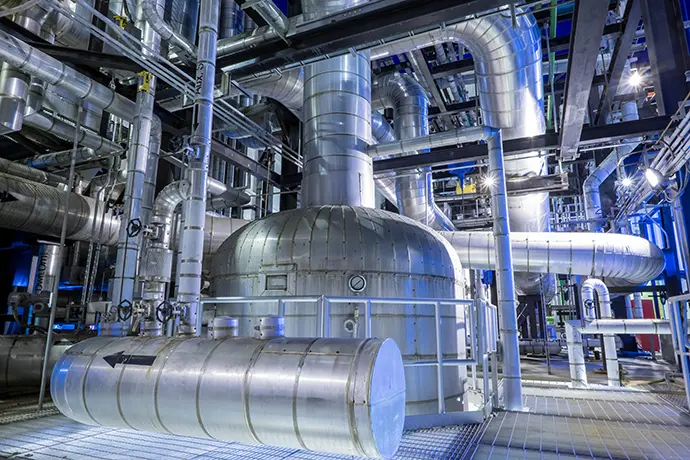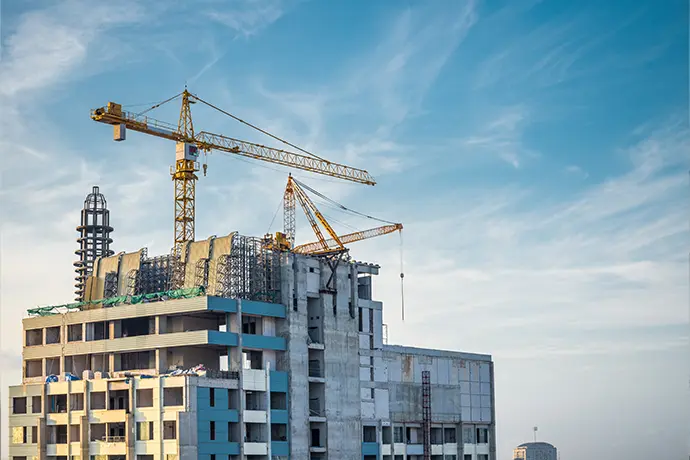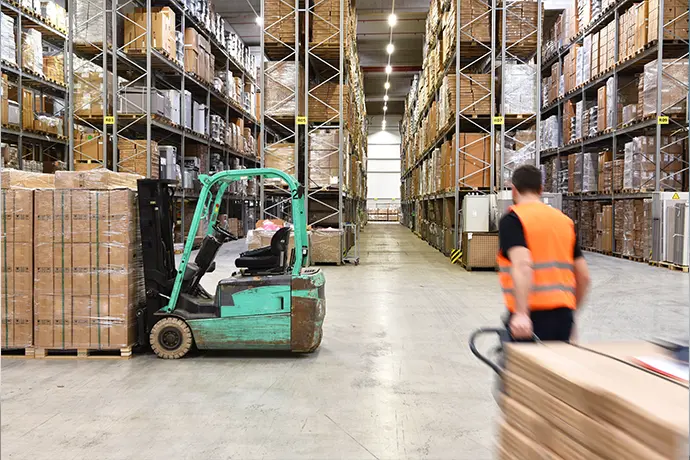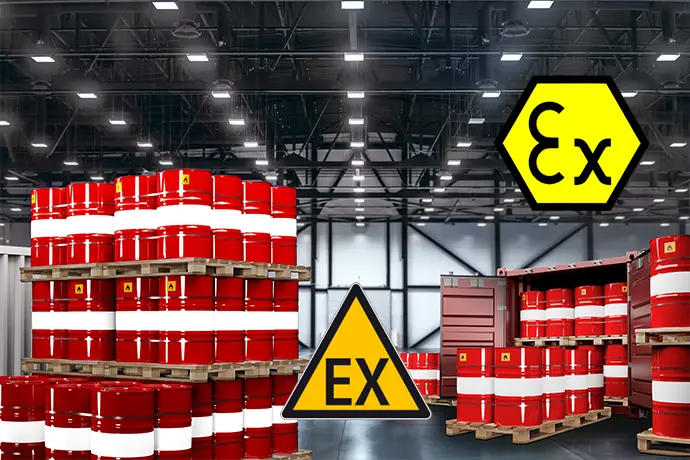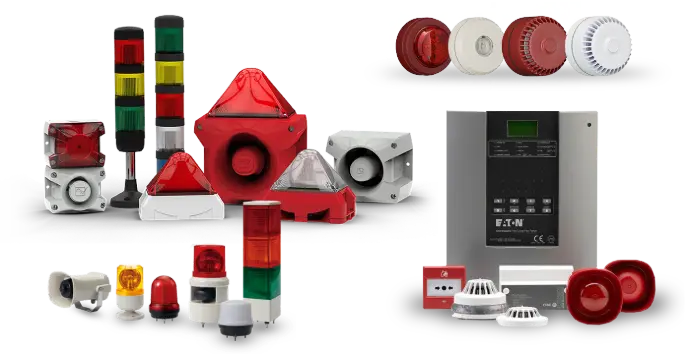Essential Safety
Regulations in Europe
Safety signaling systems are essential for protecting
both lives and property by detecting hazards,
issuing alerts, and enabling evacuation
procedures in hazardous environments.
Essential Safety Regulations in Europe
Safety signaling systems are essential for protecting both lives and property by detecting hazards, issuing alerts, and enabling evacuation procedures in hazardous environments.
Compliance in Europe:
Sector-Specific Regulations at a Glance
To help you navigate European safety compliance requirements, we’ve summarized the key regulations by sector. These insights will guide you in understanding the expectations for your industry while ensuring you remain compliant with the latest standards.

Industrial Facilities
Key Regulations:
Compliance with the EU Directive 92/58/EEC mandates the provision of safety and/or health signs at work. Visual and audible danger signals must comply with EN ISO 7731:2008 (audible signals) and EN 842:1996+A1:2008 (visible signals), ensuring warnings of machinery hazards, chemical risks, and fire emergencies are clear and effective.
Why It Matters:
Industrial environments, such as manufacturing plants and processing facilities, face high risks due to heavy machinery and hazardous materials. Implementing compliant signaling systems per IEC 61310-1 and relevant EN standards is essential for protecting workers and maintaining operational safety.
Is your signaling system truly compliant?
Peace of mind is just one click away:
Hospitality and Public Spaces
Key Regulations:
Adherence to security directives, including Directive 89/654/EEC, requires the installation of appropriate safety systems and health signs in workplaces, which encompasses hotels, restaurants, and entertainment venues. This ensures clear communication during emergencies, facilitating efficient evacuations and crowd management.
Why It Matters:
Ensuring the safety of guests and employees in public-facing environments is critical. Proper signaling devices help manage emergencies effectively, maintaining trust and compliance with safety standards.
Is your signaling system truly compliant?
Peace of mind is just one click away:


Healthcare and Laboratories
Key Regulations:
Compliance with health and safety directives necessitates the use of standardized safety signs and signals in healthcare settings, including hospitals and laboratories, to alert staff and patients of potential hazards such as biohazards, chemical spills, or fire emergencies.
Why It Matters:
Quick response systems are vital in healthcare settings where timely alerts can prevent accidents and save lives. Proper signaling ensures a safe environment for both patients and healthcare providers.
Is your signaling system truly compliant?
Peace of mind is just one click away:
Construction Sites
Key Regulations:
The EU Directive 92/57/EEC outlines the minimum safety and health requirements at temporary or mobile construction sites, including the provision of appropriate safety signs to indicate hazards, mandatory actions, and emergency routes.
Why It Matters:
Construction sites are dynamic environments with inherent risks. Implementing proper signaling devices is crucial to protect workers from accidents and to comply with safety regulations.
Is your signaling system truly compliant?
Peace of mind is just one click away:


Transport and Logistics
Key Regulations:
Safety regulations require the implementation of appropriate signaling devices in warehouses, logistics hubs, and transportation networks to manage evacuation procedures and operational hazards, ensuring the safety of personnel and goods.
Why It Matters:
In busy and dynamic environments, effective signaling systems are essential to prevent accidents, manage traffic, and ensure smooth operations.
Is your signaling system truly compliant?
Peace of mind is just one click away:
Hazardous Areas (ATEX Zones)
Key Regulations:
The ATEX Directive 2014/34/EU mandates strict requirements for equipment and protective systems intended for use in potentially explosive atmospheres. This includes the use of explosion-proof signaling devices in designated ATEX zones to prevent ignition risks.
Why It Matters:
In industries such as oil, gas, and chemical processing, preventing explosions is crucial. Compliant signaling devices are critical to maintaining safety in these high-risk environments.
Is your signaling system truly compliant?
Peace of mind is just one click away:

Durable Hardware
Solutions
Discover our robust and reliable hardware offerings designed for durability and sustainability.
Expert Material Repair Services
Need repairs? Our skilled technicians specialize in restoring hardware to its optimal condition.
Customized
Solutions
Tailored hardware offerings and expert guidance to meet your unique business and specific needs.
Curious about Regulations in Europe?
Fill in the contact form below and we will get back to you as soon as possible.
We will be happy to advise you on the equipment best suited to your specific needs.
